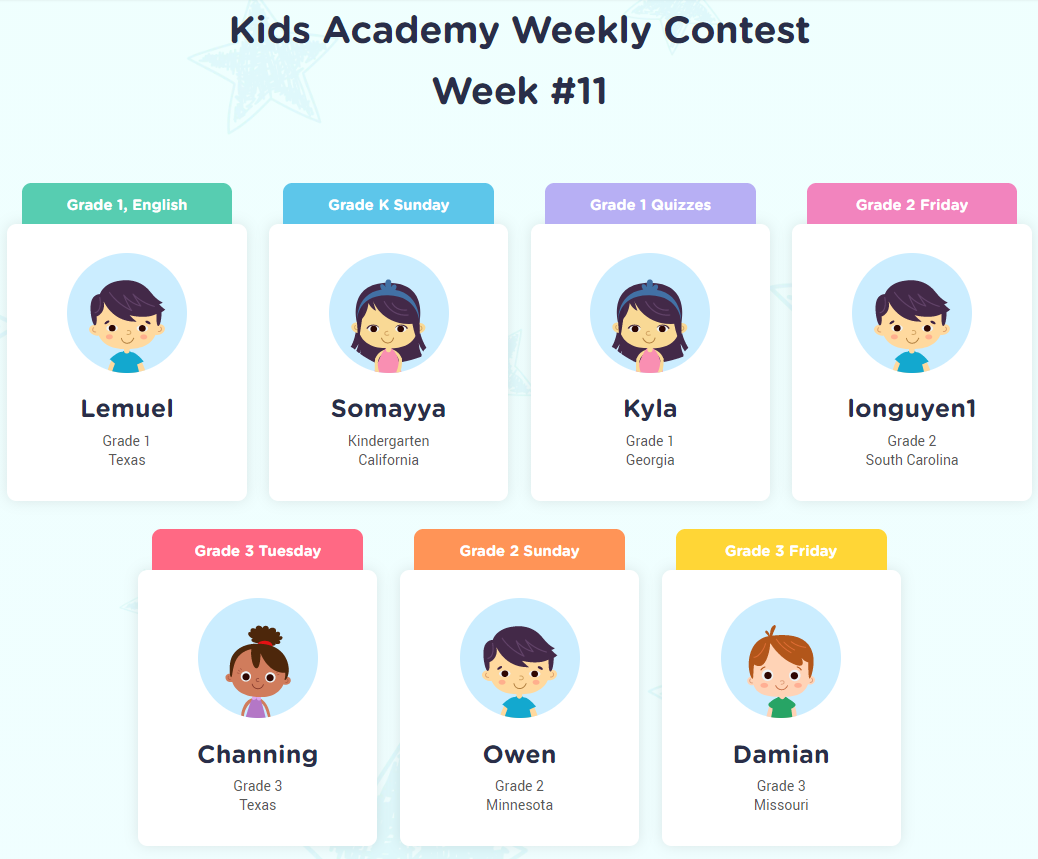Geometry Worksheets Activities With Answers for Ages 3-6
7 filtered results
-
From - To
Discover engaging geometry worksheets and activities designed for children ages 3 to 6! Our collection provides a fun and interactive way for young learners to explore shapes, sizes, and spatial awareness. Each worksheet comes complete with answer keys, ensuring that parents and educators can easily assess progress and understanding. From identifying 2D and 3D shapes to simple pattern recognition, these activities promote critical thinking and foundational math skills. Perfect for classroom use or at-home learning, our geometry worksheets make math enjoyable and accessible for all preschool and kindergarten-aged children. Spark a love for shapes today with our thoughtfully crafted resources!
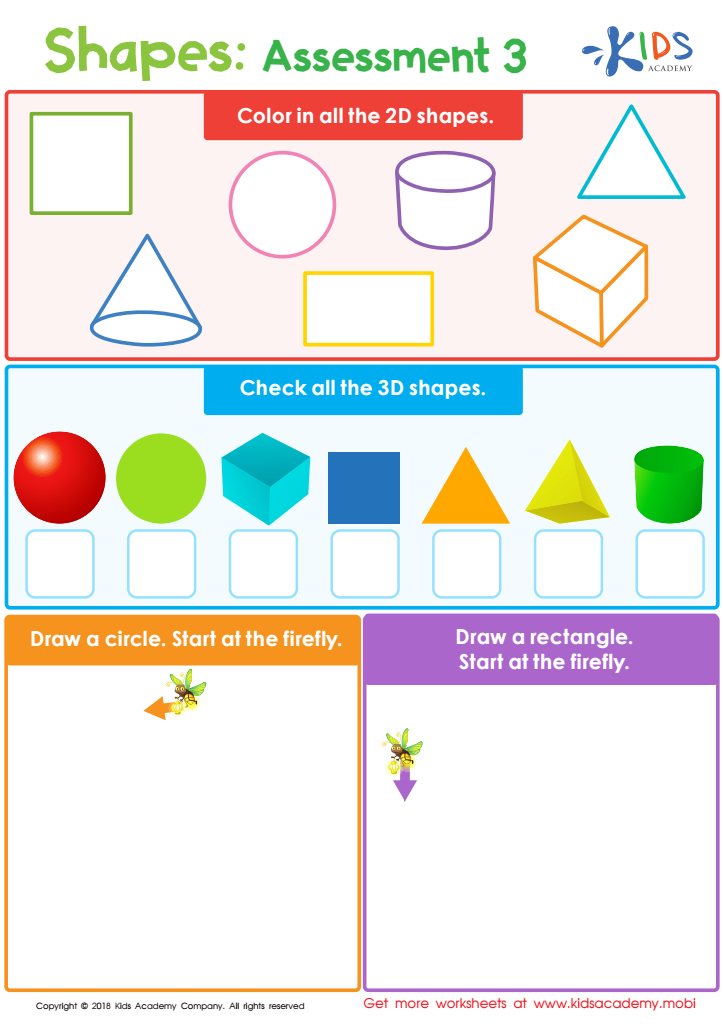

Shapes: Assessment 3 Worksheet
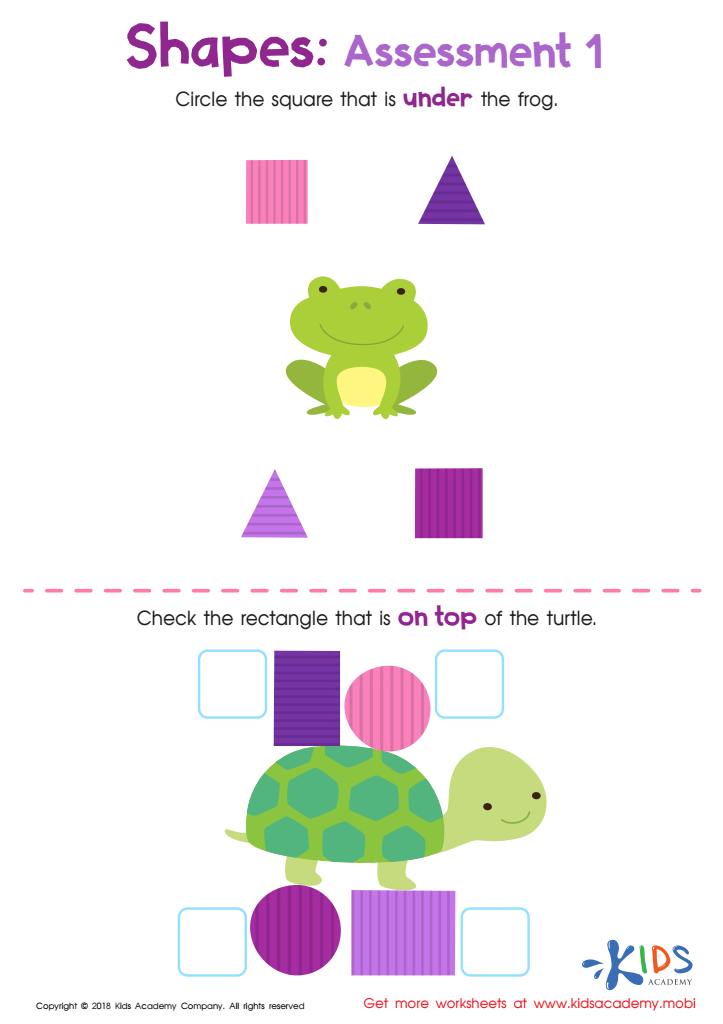

Geometry – Assessment 1 Worksheet
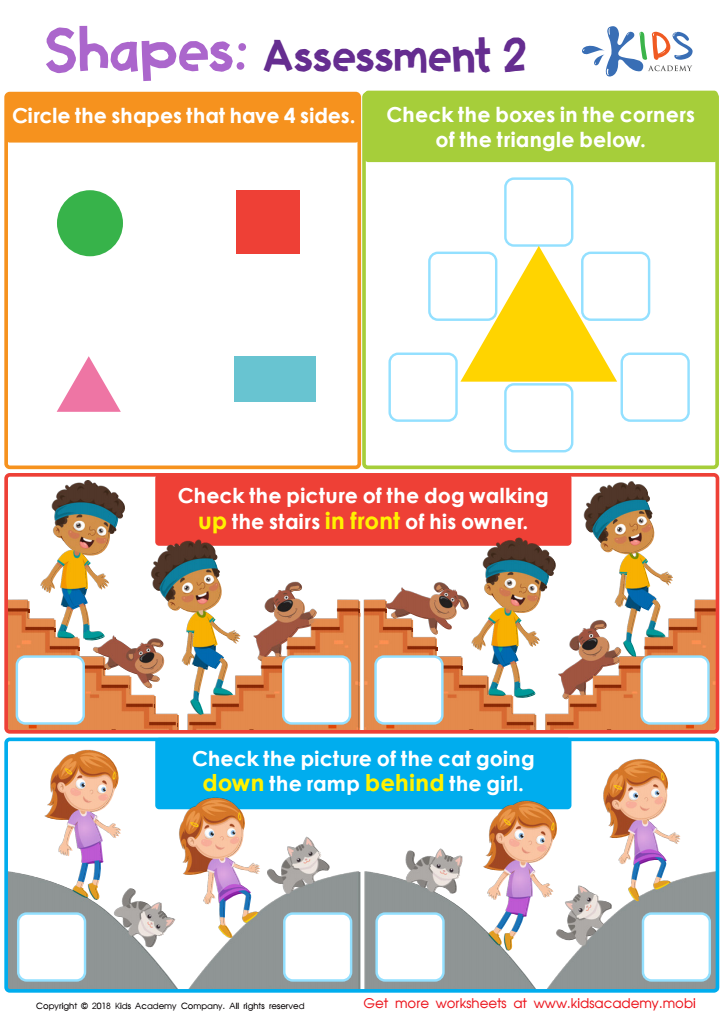

Shapes: Assessment 2 Worksheet
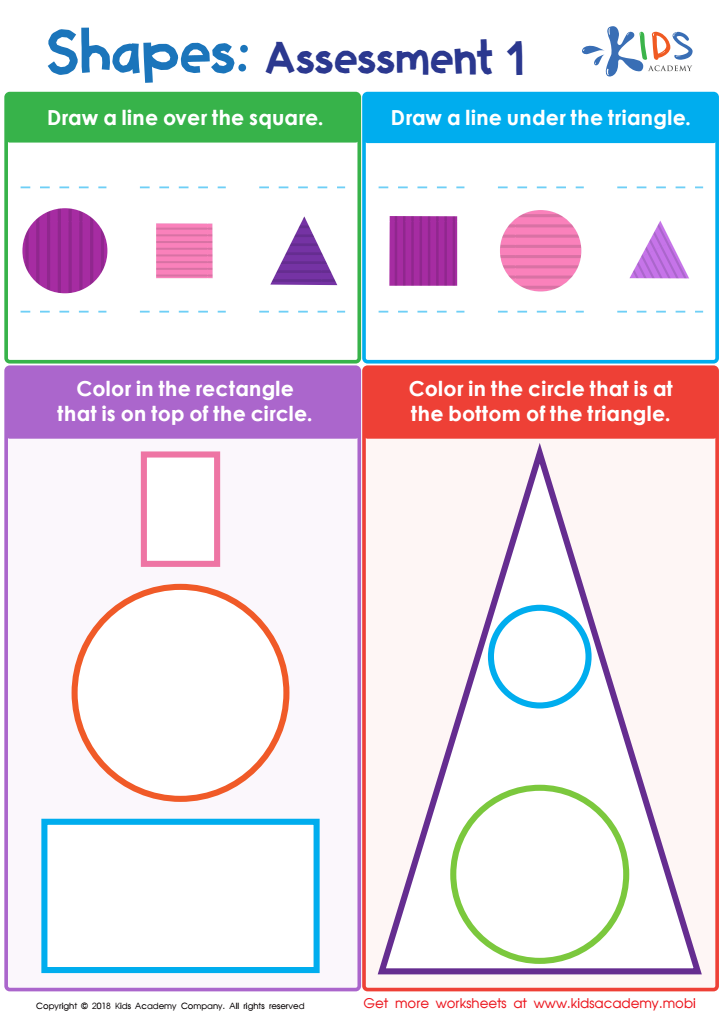

Shapes: Assessment 1 Worksheet
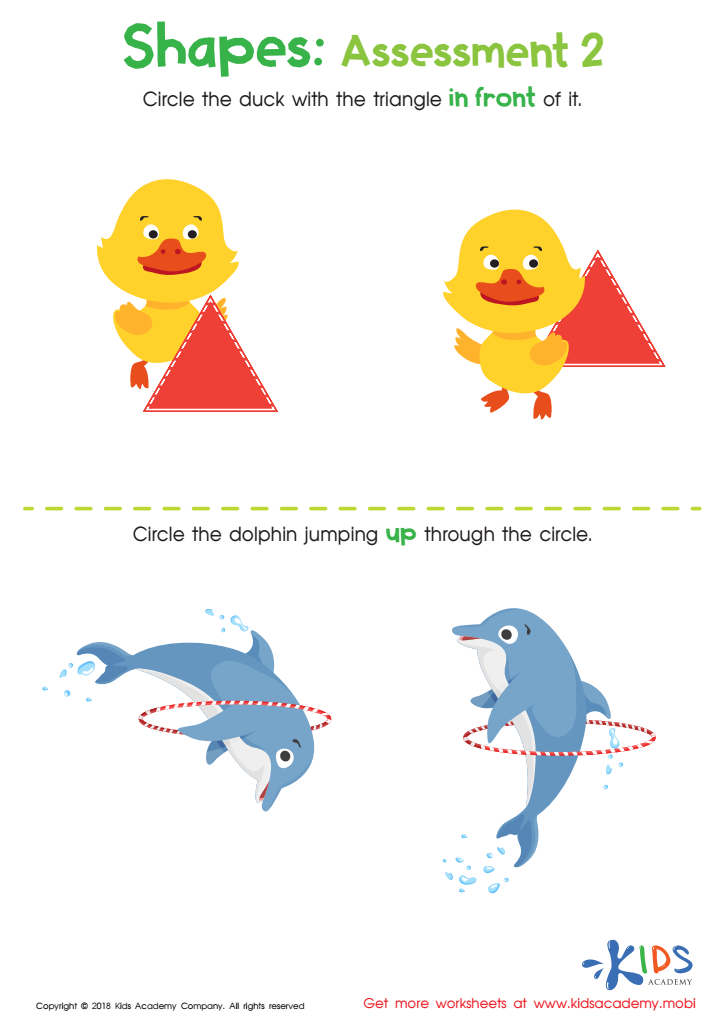

Geometry – Assessment 2 Worksheet
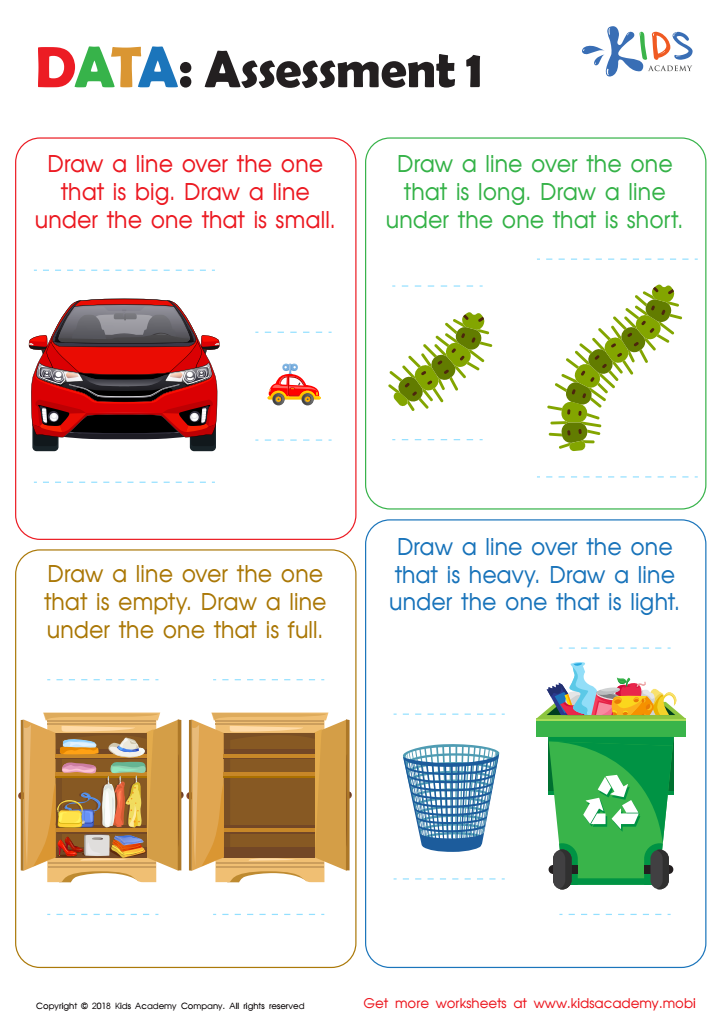

Data: Assessment 1 Worksheet
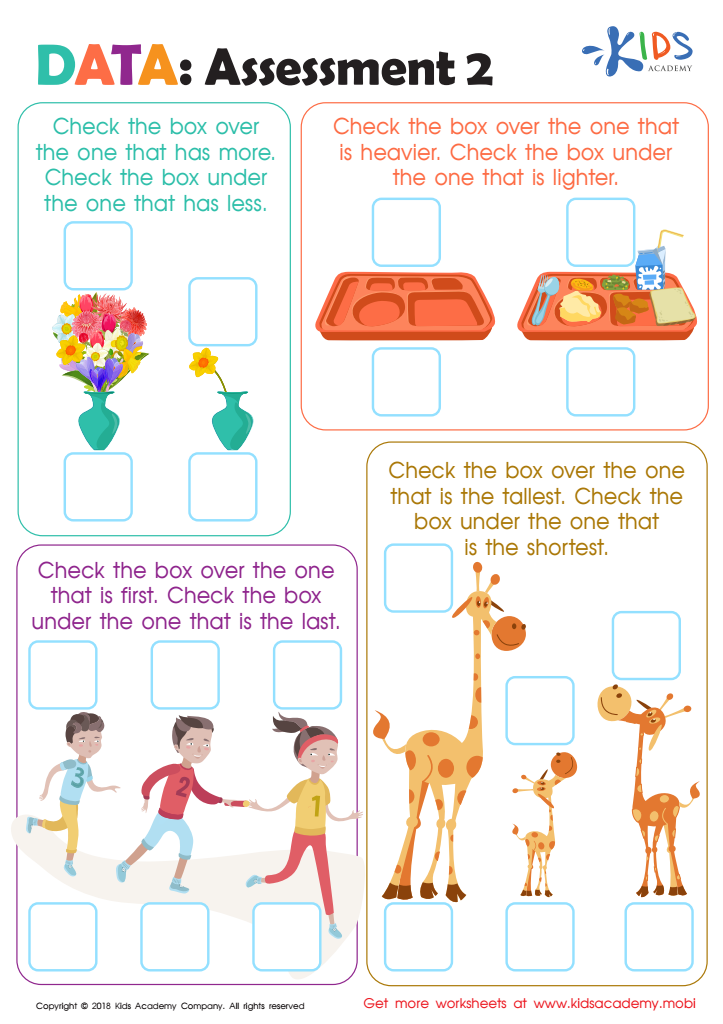

Data: Assessment 2 Worksheet
Parents and teachers should prioritize geometry activities for ages 3-6 because these foundational exercises significantly enhance early cognitive development. At this age, children are naturally curious explorers, and geometry activities provide them with an opportunity to learn about shapes, spatial awareness, and relationships in a hands-on, engaging way.
Introducing geometry to young learners cultivates critical thinking and problem-solving skills. Activities like shape sorting, building with blocks, and engaging in simple puzzles encourage children to analyze, categorize, and construct their understanding of the world. As they interact with various geometric shapes, they develop a vocabulary essential for math literacy, which lays the groundwork for future mathematical learning.
Additionally, these activities promote fine motor skills through manipulation of objects, fostering both coordination and creativity. Shape recognition can also help in enhancing visual perception, which is vital for literacy and other subjects.
Finally, collaborative geometry activities can strengthen social skills, as children work together to explore and solve problems, supporting social and emotional growth. Overall, geometry activities are crucial in nurturing a love for learning and reinforcing essential skills that will benefit children throughout their educational journey and beyond.
 Assign to My Students
Assign to My Students









